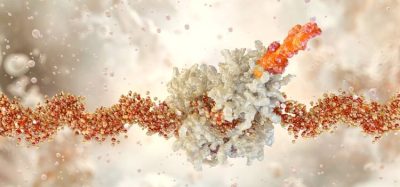Prostate cancer treatment reduced from 37 treatments to 5
Posted: 13 August 2018 | Iqra Farooq (European Pharmaceutical Review) | No comments yet
A minimally invasive hydrogel technology was administered, and has previously shown to decrease treatment side effects…


A clinical trial led by researchers from Queen’s University Belfast have shown that men diagnosed with prostate cancer may potentially benefit form ‘radical radiotherapy’ that delivers treatment in five visits.
Usually, 37 visits are necessary for the course of radiotherapy, however this trial used an advanced treatment called ‘SABR’ (Stereotactic Ablative Body Radiotherapy) which uses high doses per treatment and is highly accurate in targeting certain cancers. The ‘SPORT trial’ is a ‘Study Evaluating Stereotactic Prostate Radiotherapy in High-Risk Localised Prostate Cancer’ and is the first in the UK to use the SABR treatment system.
Professor Suneil Jain, a Clinical Lecturer at Queen’s University led the study, along with Dr Ciaran Fairmichael, a Clinical Research Fellow at Queen’s University.
“One of the complications from using radiotherapy is the potential damage that can be inflicted on neighbouring tissues,” explained Dr Fairmichael.
In order to combat this issue, SpaceOAR, a minimally invasive hydrogel technology was administered prior to the radiotherapy treatment. In previous studies, SapceOAR has significantly decreased unwanted radiotherapy side effects in patients.
Dr Fairmichael added, “In this trial, we are evaluating the performance of the SpaceOAR hydrogel which is inserted between the prostate gland and the rectum of the patient. This creates a greater distance between the prostate tumour and other tissues, which allows us to concentrate the radiotherapy dosage provided to the tumour, and thus reducing the chance of radiation harming other tissues close to the tumour such as the bowel.”
Mr Gordon Robinson, aged 70, took part in the trial and said, “If it wasn’t for this research, I simply would not be here. My family and I are so thankful to the doctors who have helped us. This treatment has allowed me to live my life again.”
Using the new SpaceOAR hydrogel means clinicians may be able to treat the prostate with a higher dose of radiation, potentially without increasing the risk of side-effects, including impotence, bladder and bowel problems.
“Taking part in this trial meant I was offered a high-dose five treatment course instead of enduring two months of treatment. The treatment was really successful in getting rid of my tumour,” added Mr Robinson.
“I knew about the side effects of treatment, and they really frightened me, but this trial meant I had very little discomfort or complications and can return to normal life, for that I am very grateful.”
Preliminary results of this trial encompassing the use of SpaceOAR and SABR, the concentrated radiotherapy treatment, have been published in the British Journal of Radiology.
The clinical trial is still open, with hopes to offer the treatment to a wider range of men.
Related topics
Clinical Development, Clinical Trials, Drug Development, Research & Development (R&D)









